PF Basics: Info for Newly Diagnosed Patients

PFF Support and resources
Top Takeaways
- Joining an in-person or virtual pulmonary fibrosis (PF) support group can improve your emotional well-being and have a positive effect on your overall health.
- In addition to support groups, the Pulmonary Fibrosis Foundation (PFF) offers numerous resources for your PF journey.
- The PFF website provides a wealth of reliable, easily understandable information about the disease, accessing quality medical care, finding support, and getting involved.
- The Foundation also offers a dedicated help center, biennial conference, virtual education symposium, social media accounts, and monthly newsletter to keep people living with PF informed and connected.
- Becoming a PFF Advocate is an empowering way to make positive change in the PF community.
An engaged, supportive community
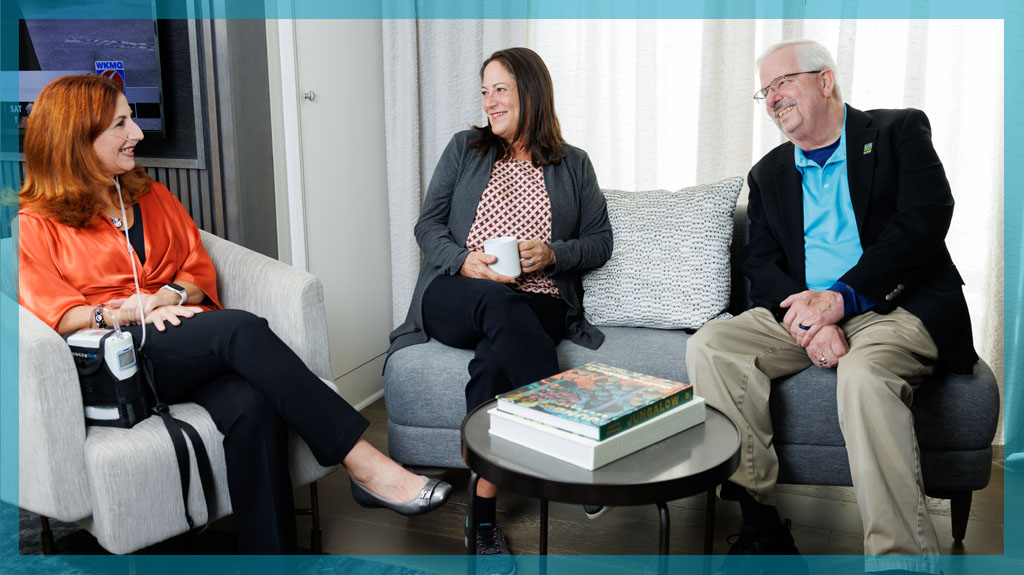
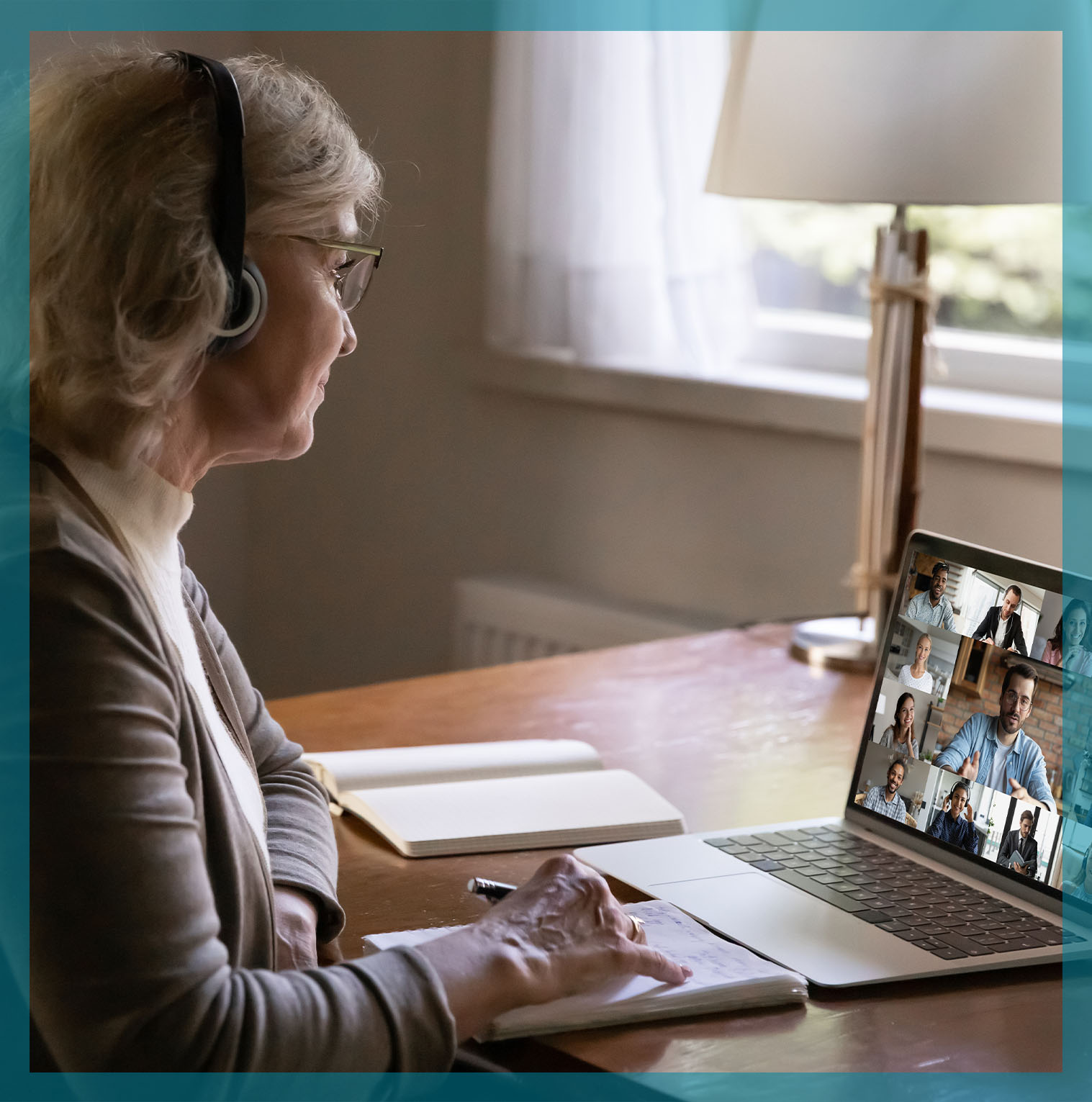
Join a PF support group
Connecting with others facing similar experiences can improve your emotional well-being and have a positive impact on your overall health. Other people living with PF truly understand what you’re going through and can relate to your challenges. Support groups—in-person or virtual—provide an opportunity for participants to share experiences, practical information, and resources. A support group can also be a valuable source of encouragement and inspiration for patients, caregivers, family members, and friends.
The Foundation can connect you to a PF support group near you. The PFF also hosts three Zoom support meetings each month for people who aren’t able to attend in person or want more support between other group meetings. Read more and find in-person and virtual support groups or watch a short video.
If there’s no support group in your area and you’re interested in starting one, the PFF can help with tips for planning, recruitment, topical content, and more. Read more or watch a short video.
Participating in a support group can help you cope with your diagnosis. But it’s important to remember it doesn’t replace care from a mental health professional, and it’s not a substitute for medical advice from your doctor. You’ll learn a lot from other patients in a support group, but always speak with your physician before making any changes to your care plan.
Explore the PFF website
In addition to these modules for newly diagnosed patients, the PFF website offers a wealth of resources for people living with PF. Use the navigation bar at the top of the site to visit these sections:
- Visit the Understanding PF section for detailed information about the disease, types of PF, and treatment options.
- The Patients and Caregivers section includes medical and support resources, a library of educational resources (videos, webinars, a blog, and downloadable fact sheets and brochures), details on oxygen therapy, and information on research and clinical trials.
- The Get Involved section highlights upcoming events, volunteer opportunities, the annual PFF fundraising walk, stories from people living with PF, and ways to give.
- Check out About Us to learn more about the Foundation, including its mission, history, leadership, and what we do: patient support programs, policy and advocacy work, research support funding, and education.
Start exploring with a short PFF website tour with Amy Hajari Case, MD.
.jpg?sfvrsn=22ca7bc2_0)

Sign up for our monthly newsletter
Stay up to date with the latest information from the PFF by signing up for our monthly newsletter. Topics include news about the Foundation, new clinical trials, treatment options, support groups, webinars, and more.
Get answers at the PFF Help Center
Looking for accurate information about PF? Searching for the support group or PFF Care Center nearest you? The PFF Help Center is a central information hub for people living with PF, caregivers, and healthcare providers. Call 1.844.825.7533 or email help@pulmonaryfibrosis.org.
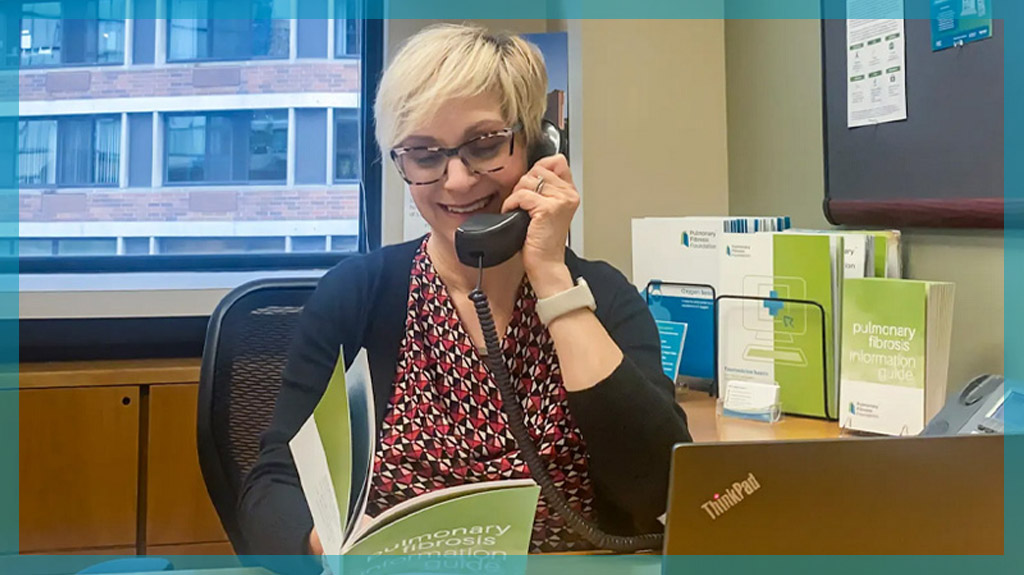
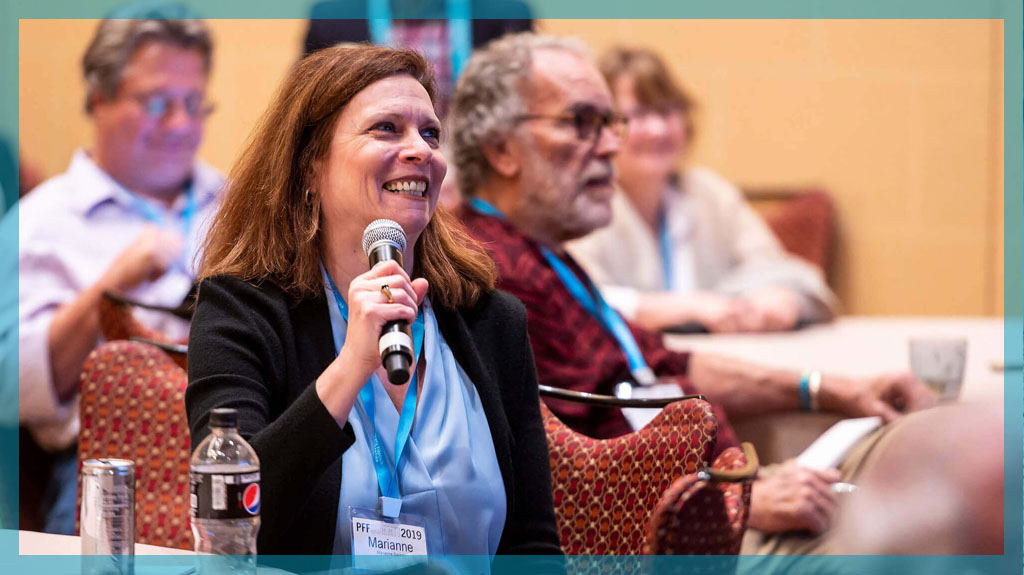
Attend the PFF Summit
PFF Summit is the world’s largest conference focused on PF and interstitial lung disease (ILD) research and education. Held every other year, it unites the community—patients, caregivers, lung transplant recipients, those who’ve lost a loved one, physicians, researchers, nurses, industry representatives, and anyone impacted by PF—to come together as one to learn about this disease from globally recognized experts.
The conference offers sessions designed for people living with PF and their caregivers and loved ones. Other sessions provide information specifically for healthcare professionals. Attendees receive the latest and most trusted, accurate information about the causes of PF, treatment options, research updates, and living well with the disease.
Summit sessions are recorded for those who are interested but unable to attend in person.
Join the virtual PFF Education Symposium
The virtual PFF Education Symposium focuses on the latest information in PF research and treatment options. At this two-day event, held every other year, people living with PF, family members, loved ones, and caregivers are invited to join the PFF medical team and other experts in the field to discuss disease management topics such as pulmonary rehabilitation, caregiving, and oxygen. Read more and sign up for updates on the next symposium.

Become a PFF Advocate
Taking action to improve the lives of people living with PF is empowering. The PFF advocates with public officials on issues that affect PF patients and are of importance to the pulmonary fibrosis community at large. Advocacy ensures elected officials understand the importance of federal funding for PF research and the need for reform for Medicare beneficiaries’ access to supplemental oxygen. Because of advocacy efforts, public funding for PF research has steadily increased in recent years and the Supplemental Oxygen Access Reform (SOAR) Act has been introduced in Congress. We need people like you to help move this legislative change forward—and you can advocate in person or from your home. Read more on our advocacy page or watch an hour long video.

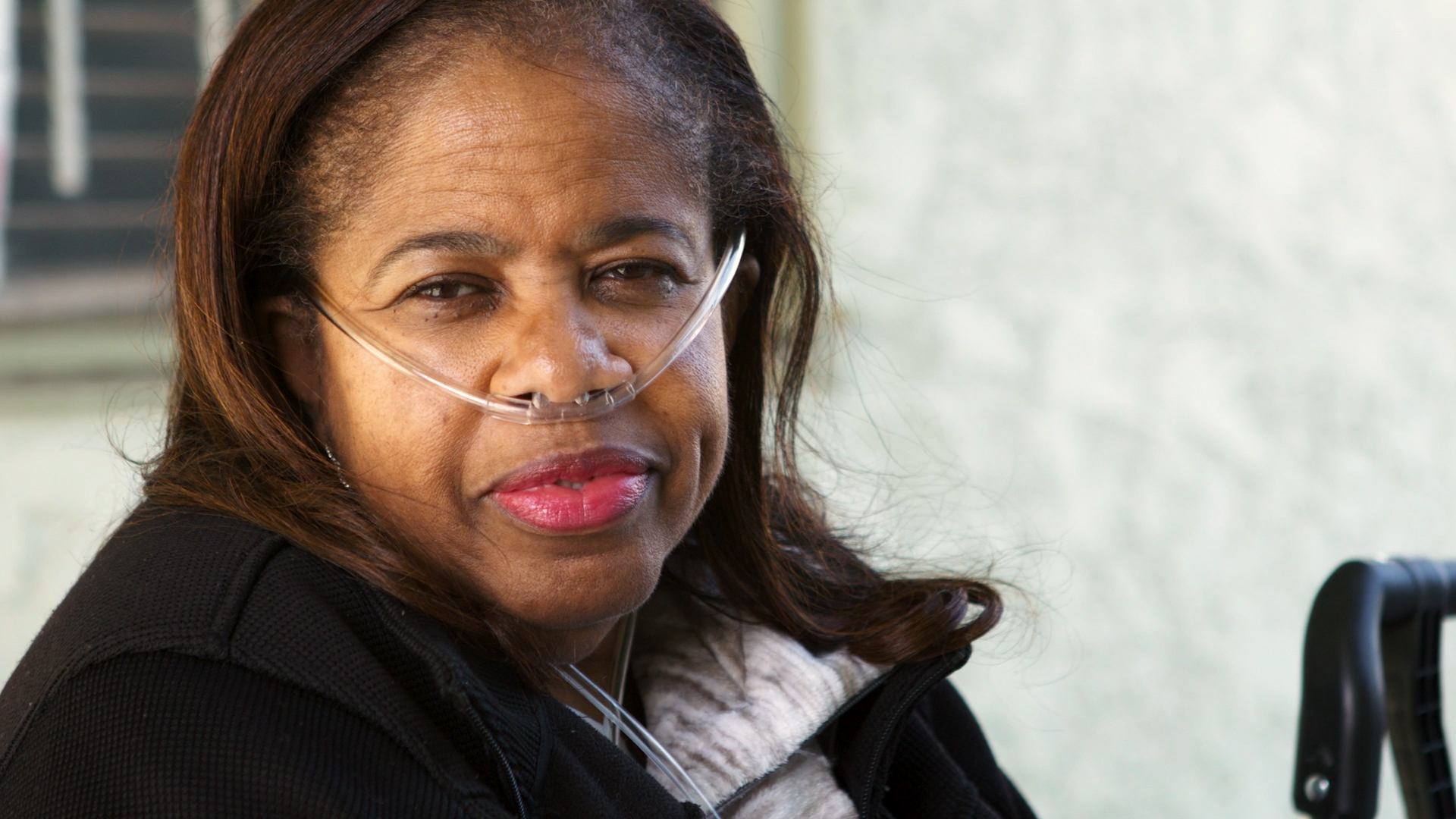
Patient Stories
The experiences of other people living with PF can provide valuable tips, encouragement, and inspiration—especially when you’re newly diagnosed. Read stories from other patients, and if you’d like, share your own.
Next Steps
Deeper Dive

